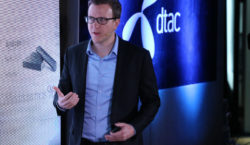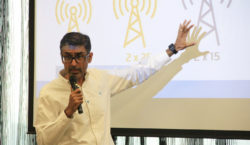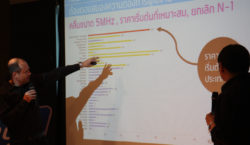The ‘dtac loop: The Shapes of Data’ event underscored how machine learning, connected devices and big data can empower society.
On 21 March mobile service provider dtac held a talk with four speakers on big data and machine learning. They demonstrated how connected devices, big data and machine learning can be combined to unlock new value in the fields of health, marketing and agriculture.
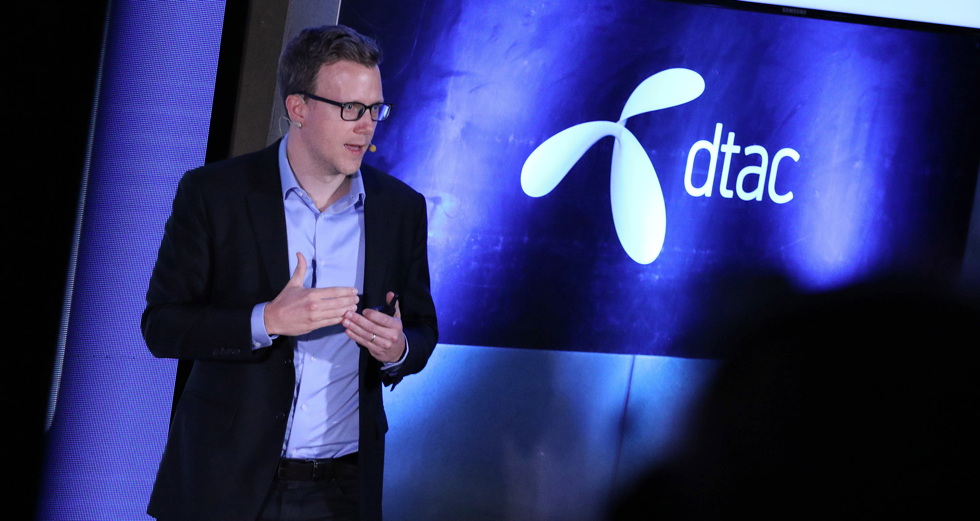
The first speaker was Andrew Kvalseth, dtac’s newly appointed Chief Marketing Officer. He focused on advanced customer personalization, which relies heavily on big data and machine learning, areas in which dtac is the industry leader.
“With personalization, the idea is to be able to go from knowing what you’re looking for and actively searching for it to just showing up and saying, ‘Hi, it’s me. Amaze me,’” said Mr. Kvalseth.
Mr. Kvalseth outlined how dtac uses machine learning in both its extensive in-house online marketing capabilities and through strong partnerships with social media services. This allows dtac to provide customers, or prospective customers, with offers that are continually refined to best meet their needs.
“It’s working,” he said. “Eighty per cent of dtac’s data users with smartphones have downloaded our app. Our digital revenue increased more than tenfold in 2017. Our customers are increasingly realizing that our personalized offers can bring value to them.”
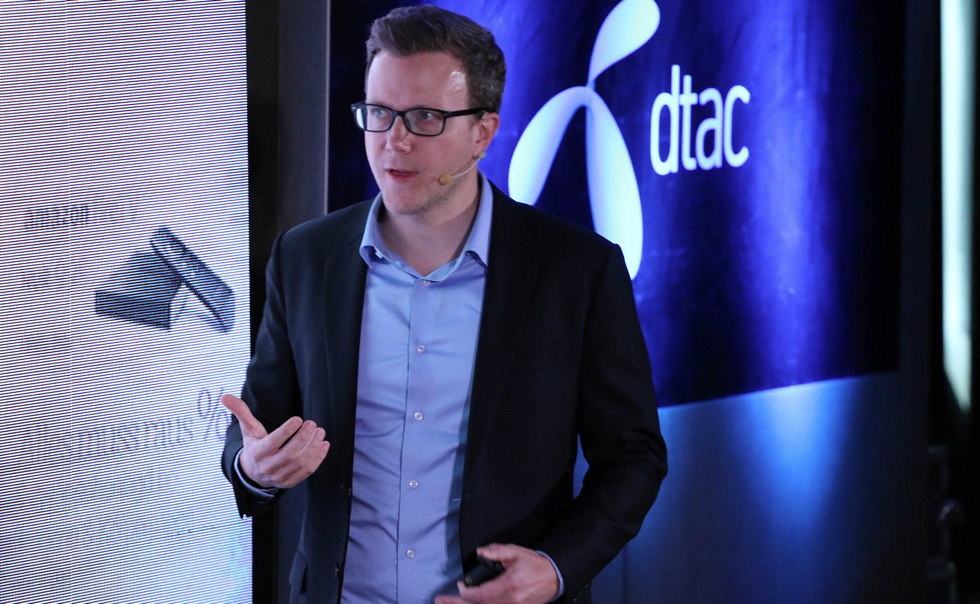
To generate this level of personalization, dtac must process billions of data points that are constantly being updated. Mr. Kvalseth highlighted that only advanced machine learning algorithms can make sense of this much data and turn it into segments of like-minded customers.
Founded by four MIT grads, Ricult tackles the low yields of Thai farms and consequent poverty of Thai farmers with extremely precise satellite imagery and weather forecasts. Their motto: “Those who feed us need us.” Strategy manager Chawin Chatsirivichaikul introduced the AI-powered future of precision farming in Thailand—including a new collaboration with dtac Smart Farmer.
“The yields of Thai farms aren’t just low compared to global benchmarks, they’re low compared to our regional neighbours. Thai farmers keep spending more and more on fertilizers and pesticides but their yields hardly increase,” said Mr. Chawin. As a result, Thai farmers make up the bulk of Thailand’s population beneath the poverty line.
By providing farmers with actionable information, Ricult is able to increase yields by 40 per cent and profits by 100 per cent. While open source weather forecasts are for a 50km radius, Ricult’s have a resolution of 3km. Its machine learning algorithms applied to satellite imagery can also analyze the light reflected off of leaves to estimate the crops’ health.
“dtac’s Smart Farmer app, which was developed jointly with the Rak Baan Kerd foundation, has already been downloaded 100,000 times by tech-savvy farmers. Through this app, we hope to reach even more farmers and help break the cycle of poverty,” Mr. Chawin said of the Ricult-dtac partnership.
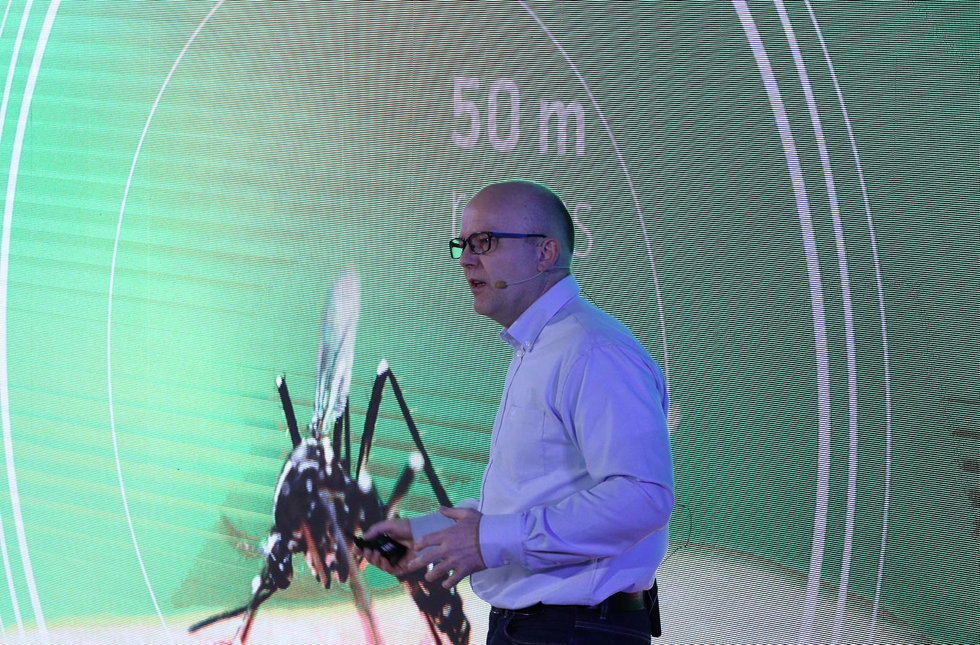
Telenor’s Senior Research Scientist Kenth Engø-Monsen defines himself as a data explorer. In partnership with Harvard University, his work has led him to Pakistan and Thailand, where he harnesses mobile data to predict the spread of infectious diseases. He shared why stopping the spread of dengue and malaria matters, and how big data can help win the day.
“Knowing where dengue or malaria will spread next is incredibly important. It tells national health services where to intensify their efforts. They can distribute mosquito nets or set up mobile clinics. They can roll out information campaigns. They can monitor that area more closely,” said Mr. Engø-Monsen.
By using data from mobile usage, it is possible to paint a picture of a country’s human mobility. This data is then layered with information on the location of malaria outbreaks to predict where humans will carry the disease next. He noted that this level of data crunching is big data on a massive scale. He also stressed the need to keep that data safe and private.
“Whenever we look at client data, we take extreme precautions. The data is completely anonymized and aggregated. It can only tell you that, for example, 500 individuals went from cell tower A to tower B. It can’t tell you who those people were,” said Mr. Engø-Monsen.
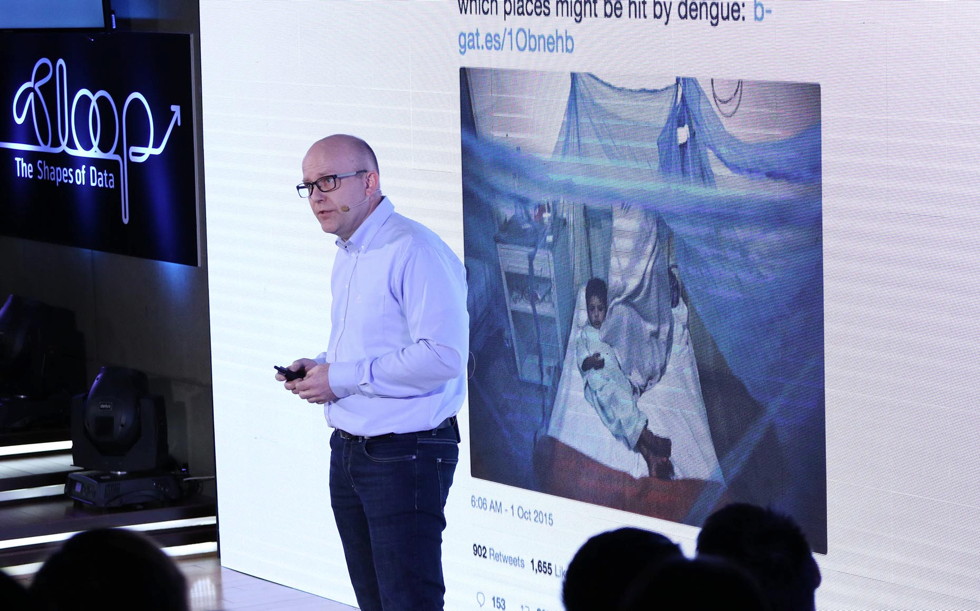
Developed jointly with Harvard University and Mahidol University, the Thailand project will rely on mobility data from dtac and case data from the Ministry of Health to better predict future malaria outbreaks in the country.
The art of Customer Value Management is both highly creative and data driven. Chatsuda Santanond explained how her team balances soft and hard skills, and how the combination of big data and machine learning keeps pushing the limits of her field.
“Our goal is to reach our customers with the right offer, through the right channel at the right moment. And with the help of machine learning, our one-to-one marketing will be even more powerful,” said Ms. Chatsuda. “Across all channels, nearly one third of our topping sales are now coming from our AI-powered recommendation engine.”
Machine learning has also enhanced dtac’s Prepaid Registration Audit by utilizing image recognition techniques. Moreover, it was used to develop social listening tool to help classify the intent (positive, negative, or neutral) of social media comments on our channels. Both projects achieved above 90 percent accuracy.
On top of the data scientists on her team, Ms. Chatsuda also joined an AI research collaboration with Thammasat University to build new AI talents for Thailand by focusing on intelligent automation, machine learning, customer experience enhancement, and analytics.

